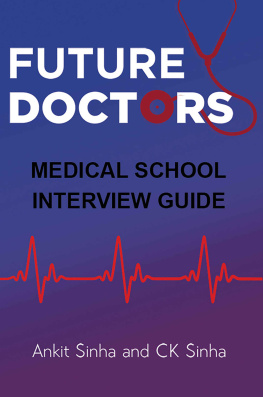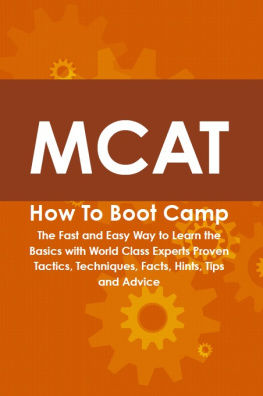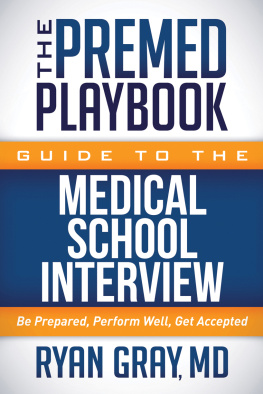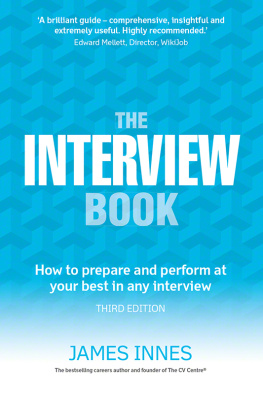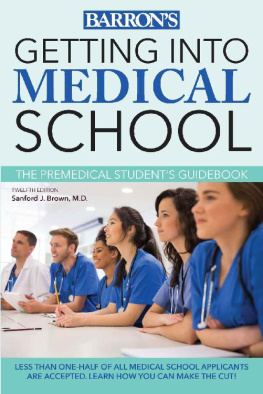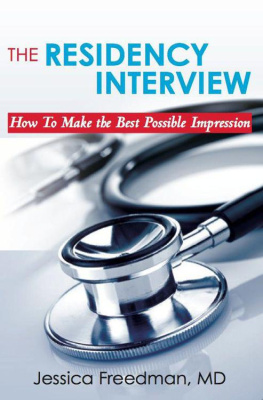Samir P. Desai - The Medical School Interview: Winning Strategies from Admissions Faculty
Here you can read online Samir P. Desai - The Medical School Interview: Winning Strategies from Admissions Faculty full text of the book (entire story) in english for free. Download pdf and epub, get meaning, cover and reviews about this ebook. year: 2013, publisher: Md2b, genre: Religion. Description of the work, (preface) as well as reviews are available. Best literature library LitArk.com created for fans of good reading and offers a wide selection of genres:
Romance novel
Science fiction
Adventure
Detective
Science
History
Home and family
Prose
Art
Politics
Computer
Non-fiction
Religion
Business
Children
Humor
Choose a favorite category and find really read worthwhile books. Enjoy immersion in the world of imagination, feel the emotions of the characters or learn something new for yourself, make an fascinating discovery.

- Book:The Medical School Interview: Winning Strategies from Admissions Faculty
- Author:
- Publisher:Md2b
- Genre:
- Year:2013
- Rating:3 / 5
- Favourites:Add to favourites
- Your mark:
The Medical School Interview: Winning Strategies from Admissions Faculty: summary, description and annotation
We offer to read an annotation, description, summary or preface (depends on what the author of the book "The Medical School Interview: Winning Strategies from Admissions Faculty" wrote himself). If you haven't found the necessary information about the book — write in the comments, we will try to find it.
In 2011, the AAMC published a survey that evaluated the importance of 12 variables on admissions decisions. These variables included total MCAT scores, science and math GPA, and the interview. The interview was rated the most important factor, receiving a score of 4.5 (scale of 1 [not important] to 5 [extremely important]).
High GPA and MCAT scores do not guarantee admission. In the aforementioned study, approximately 8% of applicants with undergraduate GPAs and total MCAT scores of at least 3.8 and 39, respectively, failed to gain admission. As you can see, the interview is never just a formality. It can absolutely make or break your chances of acceptance. Consider the following:
- The interview is an important and integral part of the selection process, writes the David Geffen School of Medicine at UCLA.
- Faculty interviews with critical evaluations are the only method...for the assessment of the important nonacademic attributes... writes the Penn State College of Medicine. The Selection Committee places great importance on these evaluations in making decisions on admission.
- High grades and/or MCAT scores alone are never enough, writes the LSU Shreveport School of Medicine. For those interviewed, impressions from the personal interview are exceedingly important.
Our recommendations are based on data from a full spectrum of sources. We have scoured the research on medical school admissions and discussed the interview process with deans and admissions committee members to give you the detailed information needed to deliver compelling answers to interview questions. How can you best prepare for the MMI, group interview, panel interview, and behavioral interview? What qualities would make applicants less likely to be admitted? What personal qualities are most valued by admissions faculty?
In our book, youll find the answers to these questions and much more. Learn how to develop the optimal strategy for interview success and gain that extra edge.
Note: This book provides an overview of the MMI. For applicants seeking detailed guidance for the Multiple Mini Interview (MMI), please see our book Multiple Mini Interview: Winning Strategies From Admissions Faculty.
Samir P. Desai: author's other books
Who wrote The Medical School Interview: Winning Strategies from Admissions Faculty? Find out the surname, the name of the author of the book and a list of all author's works by series.

